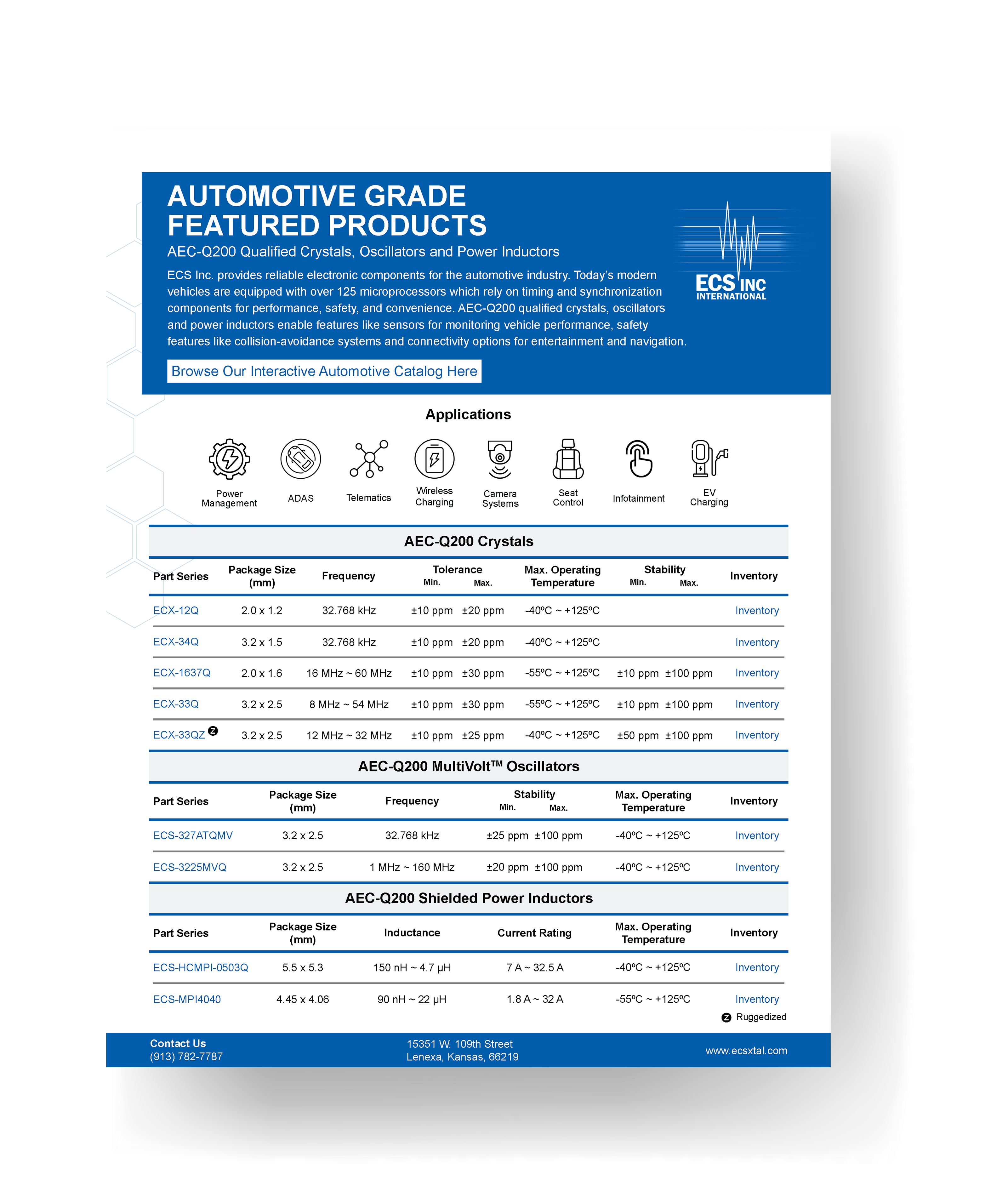

Frequency Control Products For Automotive and Transportation Applications
ECS Inc.’s robust frequency control solutions ensure seamless operation and enhanced reliability in critical automotive applications, setting the standard for modern vehicle technologies. Listed below are a few of the common applications for automotive and transportation frequency control components:
- Infotainment
- Battery and Power Management Systems
- Lighting
- Seat Control
- Tire Pressure Monitoring Systems (TPMS)
- V2X
- Advanced Driving Assistant Systems (ADAS)
- Wired and Wireless Charging Accessories
- External Camera Systems
Explore ECS Inc.’s Product Overview
The quality and reliability of electronic components in the design and manufacturing of modern smart cars is critical. ECS Inc has one of the widest selections of AEC-Q200 frequency control products in the industry. We also offer standard products in wide temperature ranges and ruggedized products designed to work in harsh environments.
ECS Inc. has developed new products to help enhance the performance of automotive applications. Our products offer the smallest package sizes in the industry. Each part has been performance optimized to add to the overall performance like ensured quick start-up of the devices that will be used in. They feature small form factor for easy implementation. Low Equivalent Series Resistance (ESR) and Low Load Capacitance (LC) for easy start up and low power consumption.
Real time keeping, i.e. clocking to meet hours, minutes and seconds, is more than ever an essential aspect in automotive electronics. Accuracy in the extended temperature ranges seen in automotive applications is an important consideration.
To ensure your automotive applications have the highest quality clocks available. ECS Inc. would highly recommend these products for your design.
32.768 kHz Tuning Fork Crystals
Surface Mount Crystals
Surface Mount Oscillators
Power Inductors
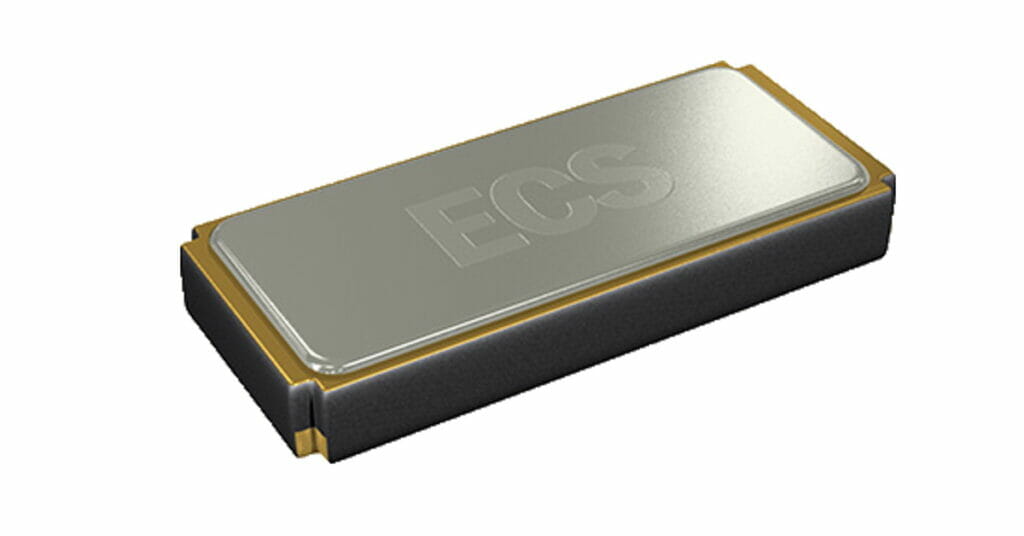
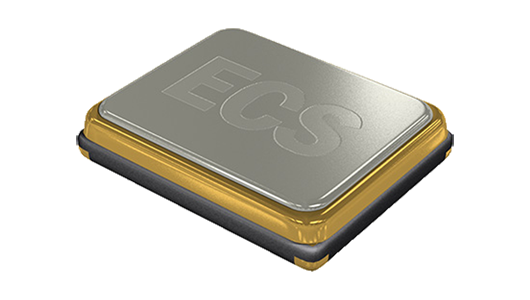
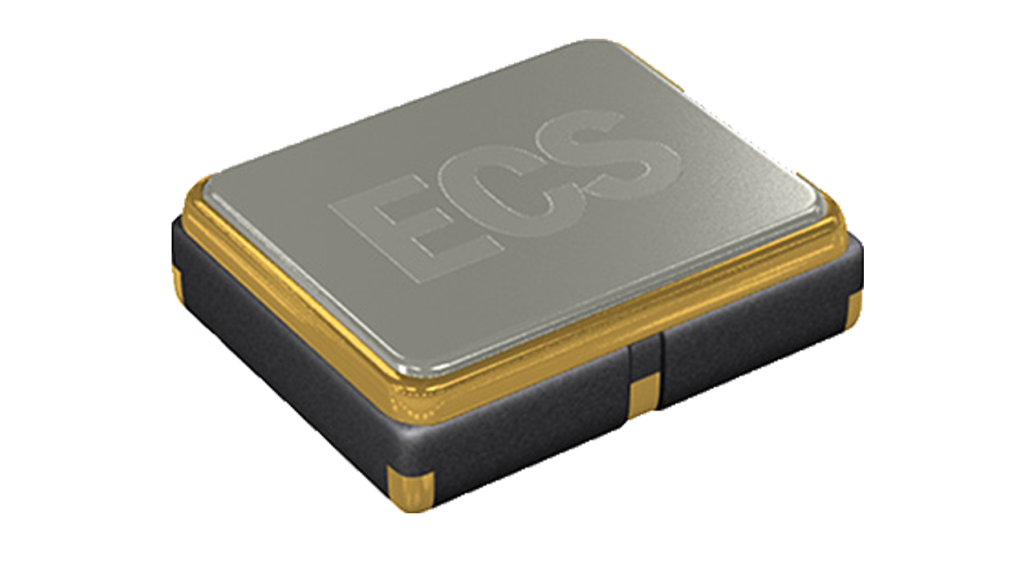

Reliable Electronic Components for Automotive Applications
Smart Cars, Electric Cars And Autonomous Cars
Today’s vehicles are more than powerful pieces of machinery designed to get passengers from point A to point B. They are also outfitted with an array of electronics that improve the vehicle’s performance, safety, comfort, and convenience. Electrical engineering and reliable, precision electronic components are what make up these intelligent features.
Reliable Electronic Components Enhance the Driving Experience
The automobile is a true marvel of electrical and mechanical engineering. Most modern vehicles that roll off the manufacturers’ floor are smart vehicles. The average sedan has well over 125 microprocessors in it. These electrical components control everything from the radio to the assortment of sensors that monitor tire pressure, oil, air temperature, driver and passenger seat preferences, fuel efficiency, collision-avoidance systems and much more.
The level of technology used in today’s automobiles is advancing at a rapid pace. Engineering requirements depend on reliable AEC-Q200 electronic components. Listed below, are a few of the options available to automobiles because of the reliable and precision electrical components used in their design and manufacturing:
Sensors
The computers in vehicles continuously monitor vehicle performance and environment. Sensors can alert drivers to problems with oil levels, tire pressure, engine status, and so much more. Mechanics often use diagnostic electronics to communicate with the vehicle’s computerized system allowing mechanics to identify easily and quickly, with accuracy, any vehicle issues.
Safety Features
The features that safeguard your driving experience on the road are numerous. Some of the more common ones are backup sensors that alert the driver to impending obstacles when they are in reverse. Road sensors alert the driver to when the road is slick due to excessive rainfall or ice. There are also sensors placed in vehicle blind spots that prevent collisions with unseen vehicles. Parents can outfit their teenage drivers’ cars with sensors that prevent their teen from driving when their mobile phone is in use, preventing texting while driving, which is one of the most common reasons for fatal motor vehicle crashes today.
Entertainment
Driver can now link smart phones to vehicle entertainment control panels and access their song playlists or favorite podcasts handsfree. Video screens allow drivers to entertain their backseat passengers with DVD, Blu-ray and digital videos.
Connectivity
Automobiles today are undoubtedly considered part of the Internet of Things or IoT. Drivers can unlock their cars remotely, contact driver assist/emergency services, plot their travel route via GPS connectivity, remote start and the list continues to grow as technology advances.
Autonomous Hands-Free Driving Technology
One of the most remarkable innovations in automobiles is the emerging autonomous handsfree driving technology. Self-driving cars are currently being tested and have been put to use in some industries. Many automobile manufacturers have also developed vehicles that can park autonomously.
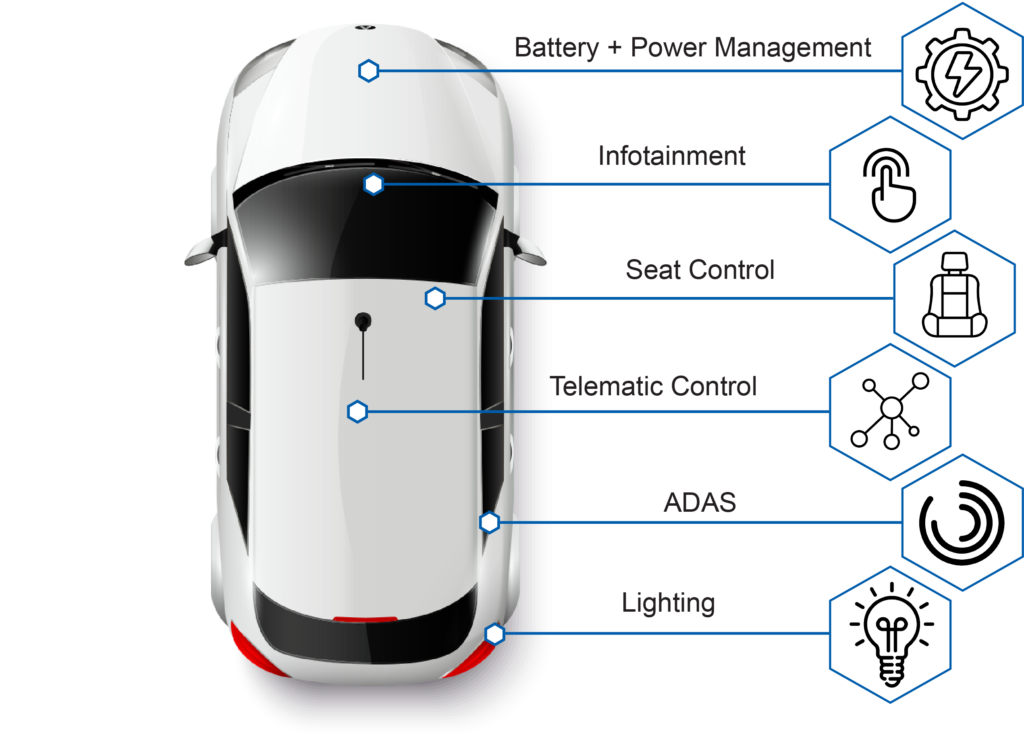
Automotive Application Resources
Digital Product Catalogs
Guides

